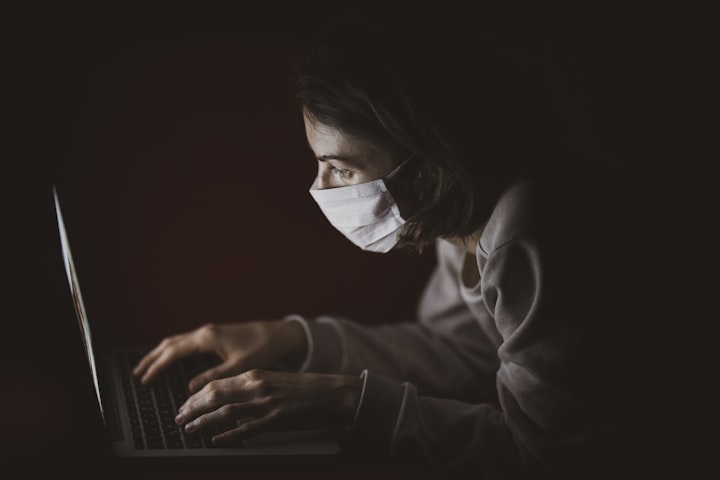New remedy for coronavirus?
Fibroblast it!

Over the past year, COVID-19 has thrown the entire world for a loop. Scientists are continuing to search for something to combat the coronavirus. During the pandemic, many different types of cures have been bandied about with not too much headway made into finding a solution.
Over the past summer, hydroxychloroquine was thought to have helped against COVID-19. However, the drug that is used for malaria did not have the crossover success many people hoped for against SARS-COV-2.
Remdesivir has been proved to bring the recovery time down from an average hospital stay of 15 days to 11 days for those who obtained major complications from the virus. Last week, the US Food and Drug Administration (FDA) approved remdesivir as the first treatment for COVID-19.
Now, medical experts are scrambling to create a vaccine for the coronavirus. The idea for this vaccine mirrors the flu vaccine in which a microdose of the virus is administered to a person so that the person can create antibodies while only experiencing mild symptoms from the very small amount of the coronavirus.
However, no vaccine will be ready until 2021. Plus, the vaccine in a Stage 3 clinical trial killed a willing participant in Brazil. If scientists are not able to locate what went wrong, then a long winter awaits all of the inhabitants of planet Earth. Plus, why would the people around the globe be enthusiastic about taking this vaccine when one of the side effects is death?
What's even worse is that the first lockdown throughout the world did not work. Although quarantining has saved plenty of lives, the world opened back up in a haphazard fashion. For example, Germany was seen as an example that other countries should follow after restarting Bundesliga matches back in May after what was deemed a successful lockdown at the time. Nevertheless, this virus is relentless because Germany had to impose another one-month lockdown starting on November 1 due to 14,000 infections recorded within the country this past Wednesday.
That number is small in comparison to the United States of America. On Wednesday, the USA reported 85,000 new COVID-19 cases. That is little over one in four thousand people within the country contracting the virus on a daily basis now. If the USA does not put a reign on this unmitigated disaster response to the coronavirus, then one out of every ten Americans will contract COVID-19 in the month of November. Another lockdown will not work in the USA because many people did not adhere to the first lockdown to quarantine.
Generally, another lockdown would not work anywhere now because the world economy would not be able to weather another drastic drop in revenue, especially during a time when many people shop for their loved ones as we approach Thanksgiving and Christmas.
What's even worse is that people are trying their own homemade remedies to prevent from contracting the coronavirus. That's like showing up to a rock fight with a bunch of pebbles. Back in May, Andriy Rajoelina, the President of Madagascar, attempted to capitalize on finding a cure to COVID-19 by saying that a drink made from the artemisia root called "COVID-Organics" would give a person an inpenetrable defense against the coronavirus. However, artemisia is used to help against malaria, just like hydroxychloriquine. Malaria is not COVID-19.
However, the results in the island country ended up being worse than those animated monstrosities of "Madagascar" and "Madagascar2." Three months later, the amount of cases quadrupled in Madagascar from 3,000 to 13,000.
In March, an Arizona man took the words of US President Trump to heart by trying hydroxychloroquine. The man owned an aquarium, and he noticed that the fish tank cleaner was actually chloroquine phosphate. Unfortunately, this man died because he took action on incorrect advice. If the fish are taken out before the tank is cleaned in order to protect the fish, then that fish tank cleaner is rather potent.
However, there could be a possible remedy that could change the tide. According to CDC data, no person that suffers from the birth defect known as achondroplasia has actually contracted the coronavirus during the pandemic within the United States.
Achondroplasia is a birth defect that affects about 1 in 100,000 babies. The issue is that the defect prevents a baby's body from converting cartilage into bone during normal growth process. The defect is from a genetic mutation in the Fibroblast Growth Factor Receptor (FGFR3) gene. This mutation prevents the cartilage from replicating into bone during the normal ossification process. This same mutation could possibly also prevent COVID-19 from replicating within the body as well.
Research definitely needs to be done to find out whether or not this hypothesis would work. I was born with a rare form of achondroplasia called epiphyseal dysplasia, so I have that mutation within my body. I have started a fundraiser for research. The goal is to copy that genetic code in order to see how the mutation works against COVID-19. If everything works out, then we could have a new remedy for the coronavirus.






Comments
There are no comments for this story
Be the first to respond and start the conversation.